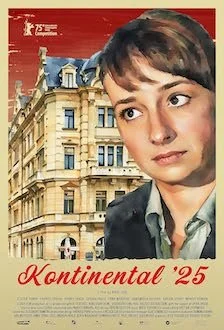Direction: Radu Jude
Country: Romania
Admired Romanian writer-director Radu Jude, always incisive and corrosive in his observations, continues to nurture a deceptively simple yet striking filmmaking style, favoring long, conversational takes—this time shot entirely on an iPhone 15. His latest feature, Kontinental ’25—both a nod to Rossellini's Europe ’51 (1952) and a sharp social commentary on Romania’s systemic failures and the erosion of individual experience—captures the essence of real neighborhoods (partly drawn from documentary footage on the history of local architecture) while following the story of a guilt-ridden Hungarian bailiff, Orsolya (Eszter Tompa). After evicting a once-celebrated athlete turned destitute alcoholic—who later takes his own life—she becomes haunted by the event.
Vilified by nationalists online and demonized by the xenophobic press, Orsolya cancels her vacation with her detached husband and seeks solace through a series of tense encounters—with a cold friend, her quarrelsome nationalist mother, an Orthodox priest, and her former law student Fred (Adonis Tanta), now a food delivery worker fond of reciting “Zen” parables.
This tragicomic narrative, seemingly small in scope, expands into a broader portrait of Romania’s social, moral, and political condition. Jude fuses absurdism with realism to create something both unpretentiously profound and mordantly funny. There are no thrills in the conventional sense—the real suspense lies in discovering where Jude will ultimately take us. Visually, the film remains modest, yet the director providies just enough terra firma to sustain viewer engagement.
While Kontinental ’25 may not reach the towering resonance of Aferim! (2015) or Do Not Expect Too Much from the End of the World (2023), it achieves a finely tuned balance between structural modesty and thematic depth. Depending on one’s patience for slow cinema, this unabashedly sardonic work will either repel or fascinate—but it unmistakably continues Jude’s bold dismantling of Romanian society from within.











































